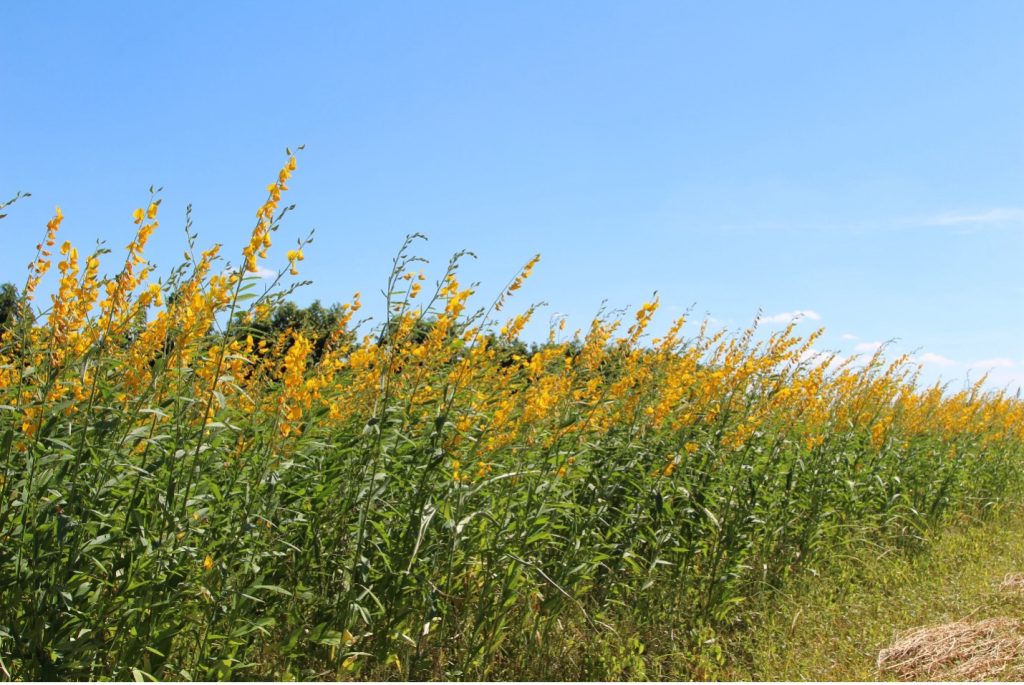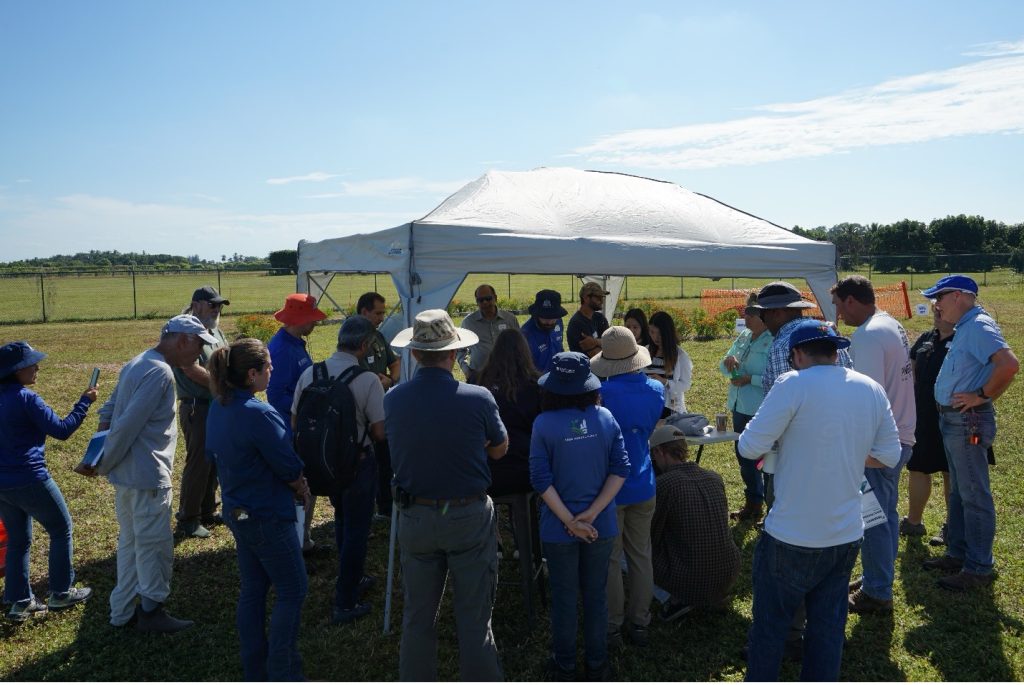It’s always tough to say goodbye to a great colleague, and today, We want to take a moment to highlight the incredible work of our former coworker, Daniel Calzadilla, as he goes on to the next chapter in his career. His dedication, creativity, and positive attitude have been a true inspiration to all of us at UF/IFAS TREC Agroecology. We’ll miss his presence in the lab and are excited to see the amazing things he will accomplish in the future. Thank you, Daniel, for your hard work and team leadership. Wishing you all the best in your next chapter!
~ Catalina and Zack
Guest Author: Daniel Calzadilla, UF/IFAS TREC Agroecology Lab 2024-2018, MS Agroecology 2023, dan.calza@gmail.com
Photo Credits: Yomiris Reyes
The sowing of the Agroecologist can be more than a profession. For me, it’s become a creed.
As an agroecologist, I believe in the power of sustainable agriculture to feed communities while regenerating the land. I prioritize the health and well-being of farmers, consumers, my community, and the environment over short-term profit and land degradation. I recognize the interconnectedness of all elements in the agroecosystem, from the microbes to the farmers. I value and integrate traditional knowledge and modern scientific research to create holistic solutions for complex agricultural challenges. I commit to continuous learning and collaboration with others in agroecology and beyond to co-create a more just and resilient food system.
This is the way.
The foundational principles guiding the agroecologist are not merely a set of practices or professional goals, it’s a way to view the world that can guide actions and principles toward sustainable agriculture (inspiring for me this creed and belief system). At its core, agroecology is a holistic approach to farming that emphasizes the interconnectedness of all elements within the agroecosystem. The foundational principles for agroecology are production, biodiversity, and resilience in agroecosystems spanning facets of agriculture, environment, and society. These principles, together with my six years as an agroecological scientist, led me to these following concepts and deepening beliefs.
Holistic Sustainability: Agroecologists view sustainability as a multifaceted concept encompassing agricultural, environmental, and social dimensions. Putting the concepts to practice prioritize the maintenance of long-term health of the land, water, and biodiversity while ensuring the well-being of farming communities and future generations.

Big Umbrella: Agroecology is both a theoretical concept and a practical farming approach. It encompasses various alternative farming and gardening methods, such as regenerative agriculture, permaculture, biodynamic, organic, silviculture, and others. Together, these methods aim to restore and enhance ecosystem functions by employing techniques like cover cropping, reduced tillage, composting, reduced synthetic inputs, crop rotation, agroforestry, and integrated pest management. Agroecologists strive to build soil health, sequester carbon, and increase resilience to shocks to the system. We can’t do it alone or in isolation and need strong communities of willing leaders, partners, and volunteers to help.

Community Focus: Agroecology emphasizes a focus on local and community-based food systems. Agroecologists prioritize the needs and preferences of local communities within the demands of global markets, fostering food sovereignty and resilience in the face of external shocks.
Interconnected: Agroecology is not just about farming practices. It’s about understanding the complex web of relationships within the agroecosystem. It underscores the importance linking plants, animals, and people. Plant, animal, and people must be included in participation and have a voice in decision-making.
Inclusive: Agroecology values diverse forms of knowledge, including traditional and indigenous wisdom, alongside modern scientific research. By integrating multiple knowledge systems, Agroecologists can develop context-specific solutions that draw on the strengths of each approach while respecting local traditions and cultural practices. Long-term solutions ensure community members, from farmers to policymakers, feel included, heard, and represented by shared goals.
Continuous Learning: Agroecologists actively seek opportunities to learn from the plants, the animals, and the people. We strive to collaborate with farmers, farming allies, and community members, encouraging them to share their knowledge and experiences. This collaborative approach empowers farmers, making them feel valued and integral to the agroecology solution.

In essence, the creed of the agroecologist is a call to action for sustainability and the well-being of society grounded in production, diversity, and resilience by agricultural and environmental practices. It recognizes the profound interconnectedness of humans and nature and a commitment to working collaboratively towards a more equitable and regenerative food system for all.
As we celebrate Daniel and his journey through Agroecology we welcome you to join us along yours.

 5
5
